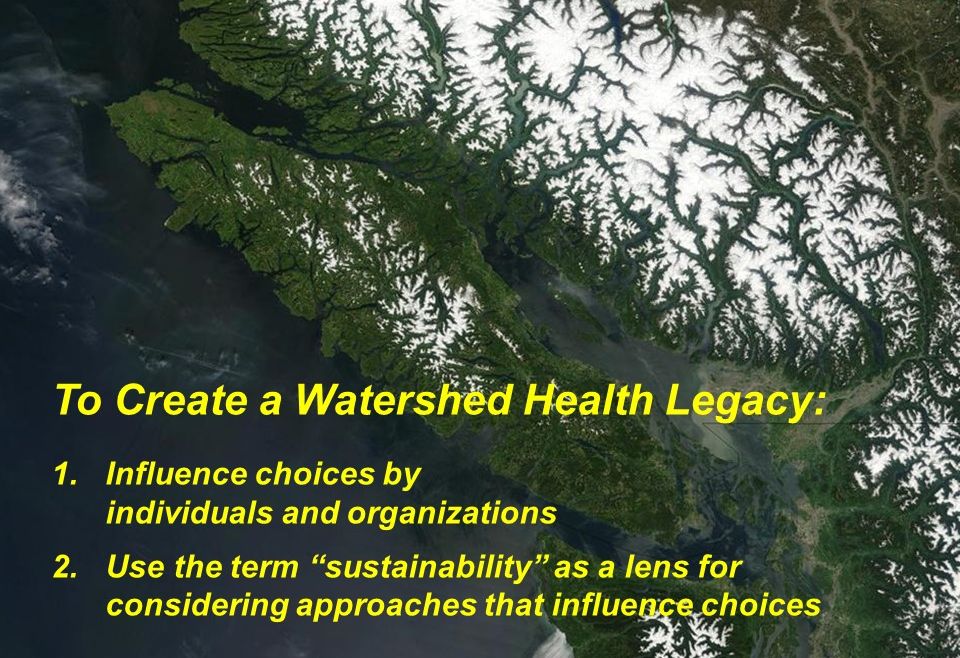Benefits of Inter-Regional Collaboration: “Peer-based learning is motivating and powerful,” stated Brian Carruthers, Chief Administrative Office, Cowichan Valley Regional District
Note to Reader:
A year ago (on April 12, 2017), the Cowichan Valley Regional District hosted a meeting of mid-Vancouver Island regional districts (Cowichan Valley, Nanaimo Region and Comox Valley). The three regional districts are partners in the Georgia Basin Inter-Regional Educational Initiative (IREI).
Although not ground-breaking, the story of this inter-regional gathering is nonetheless newsworthy: demonstrates collaboration in action; is about sharing successes and challenges in protecting water resources at the watershed and regional levels; and underscores why peer-based learning is motivating and powerful.
The unique dimension to this example of inter-regional sharing and learning were the presentations by staff from the two other regions to Cowichan Valley elected representatives.
UPDATE: Building on what it learned in 2017, the Cowichan Valley Regional District reached out to the community, other local governments and interest groups throughout February 2018 to get input on the proposed Drinking Water and Watershed Protection Service for the region. A year after the inter-regional sharing session, options for a potential establishment bylaw were presented to the Regional Services Committee.

The Georgia Basin is comprised of lands and watersheds that surround and drain into the Salish Sea. This inland sea encompasses the Strait of Georgia, Puget Sound and the Strait of Juan de Fuca. Tributary lands include the east coast of Vancouver Island, Metro Vancouver and the Fraser Valley.
Inter-regional collaboration: Vancouver Island regional districts share successes and challenges in protecting water resources
Inter-Regional Sharing & Learning within the Georgia Basin
Everyone learns from stories. In the world of local government, the most compelling are the stories of champions who are leading or pioneering changes in the way local government delivers services.
In April 2017, staff from the three mid-Vancouver Island regional districts met in Duncan. Their primary purpose in meeting was to inform and educate the Cowichan Regional Board about a range of approaches to watershed management functions and watershed protection plans on Vancouver Island.
Cowichan Valley Regional District (CVRD)
“We began with the concept of a watershed-specific service for the Cowichan River system. But the public sees water in the Cowichan region as requiring a broader regional issue. This feedback has re-shaped and evolved our thinking,’ reports Brian Carruthers, Chief Administrative Officer.
Understand the Problem to Build Consensus on a Solution:
 “So what made the difference? The answer is found in our approach to the public engagement process. We focused on the problem, rather than on a pre-determined solution. Informing and educating the community about the nature of the problem was a difference-maker to their understanding.
“So what made the difference? The answer is found in our approach to the public engagement process. We focused on the problem, rather than on a pre-determined solution. Informing and educating the community about the nature of the problem was a difference-maker to their understanding.
“A theme emerged regarding desirable roles and responsibilities for water and watershed management in the Cowichan region. It also stirred interest to explore what other regional districts are doing.”
Value of Peer-Based Learning:
“The outcome of the public engagement process provided a backdrop for the sharing and learning session with the Regional District of Nanaimo (RDN) and Comox Valley Regional District. Those regions provide a range of experience that we can learn from: the RDN has a true region-wide service function; and Comox Valley has a watershed-based service.
“The RDN and Comox Valley presentations to our Regional Board were of high quality and relevant. Board members were fully engaged. A common thread was collaboration and bringing all parties to the table. Learning from each other is motivating and powerful,” concludes Brian Carruthers.
Regional District of Nanaimo (RDN)
 “The meeting with both CVRDs was a great opportunity to emerge from our daily region-focused work, and share the big picture about our unique approach to water initiatives in our region,” states Randy Alexander, General Manager, Regional and Community Utilities.
“The meeting with both CVRDs was a great opportunity to emerge from our daily region-focused work, and share the big picture about our unique approach to water initiatives in our region,” states Randy Alexander, General Manager, Regional and Community Utilities.
“The focus of our presentation was the regional function of the RDN Drinking Water and Watershed Protection (DWWP) program – what prompted its creation, how it was created, and how/why/where it has been successful.”
RDN Drinking Water & Watershed Protection Plan:
 “Our approach is to take a regional, watershed approach to education programs, data collection, monitoring activities and scientific studies, and advocating for policy and informing land-use planning from a water-centric view,” continues Julie Pisani, DWWP Coordinator.
“Our approach is to take a regional, watershed approach to education programs, data collection, monitoring activities and scientific studies, and advocating for policy and informing land-use planning from a water-centric view,” continues Julie Pisani, DWWP Coordinator.
“The reliable long-term funding designated for our DWWP program has really enabled us to engage in meaningful and durable collaborative relationships with different groups and agencies. It has allowed us to pursue long-term datasets and take a long range view that enables better planning based on better information.”
Comox Valley Regional District
“ The essence of the story that we shared with our peers is that the Watershed Advisory Group (WAG) delivered a Watershed Protection Plan that was fully implementable, and WAG did it within a year,” reports Marc Rutten, General Manager of Engineering Services Branch.
The essence of the story that we shared with our peers is that the Watershed Advisory Group (WAG) delivered a Watershed Protection Plan that was fully implementable, and WAG did it within a year,” reports Marc Rutten, General Manager of Engineering Services Branch.
Comox Lake Watershed Protection Plan:
“ While the process was guided by a consultant, the content of the plan was developed and reviewed by a comprehensive group of stakeholders representing a broad variety of interests. As such, the implementation of the plan has a very high level of community support,” explains Zoe Norcross-Nu’u, Watershed Coordinator.
While the process was guided by a consultant, the content of the plan was developed and reviewed by a comprehensive group of stakeholders representing a broad variety of interests. As such, the implementation of the plan has a very high level of community support,” explains Zoe Norcross-Nu’u, Watershed Coordinator.
“This collaborative process and its positive outcome is something that the Comox Valley is proud of, and we were honoured to be asked to share the details of our process with our neighbouring regional districts. Coming together as neighbouring regional governments has definitely strengthened our relationships and increased the amount of inter-regional communication and sharing of methodologies, ideas, strategies and information – something all of our communities are benefitting from.”


